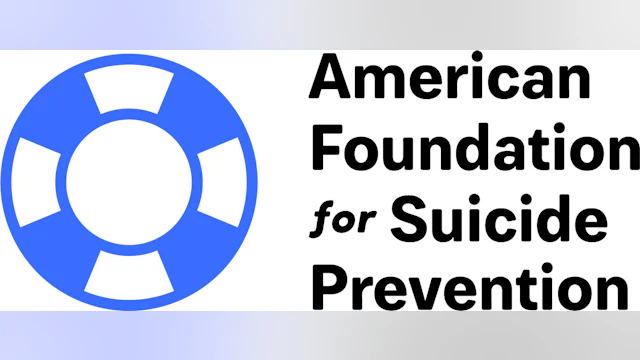Contact: Michelle Toman
Michelle.L.Toman@gmail.com
CHARLESTON, WV (February 28, 2018) – Suicide is the tenth leading cause of death in the United States, and it is the 10th leading cause of death in West Virginia. On Friday, March 2, 2018, advocates from the American Foundation for Suicide Prevention, the largest suicide prevention organization in the United States, will arrive at the state capitol to meet with lawmakers to encourage their support for legislation which would protect youth in West Virginia from conversion therapy (SB 613/HB 4435), grow the mental health workforce, and improve insurance coverage parity for mental health and substance use conditions.
"Those of us that serve the AFSP West Virginia Chapter, do so as volunteers. At our State Capitol Day, we share the most important stories of all – our own. We are here to reinforce the message that suicide is preventable; there is hope and help available. Our elected officials need to hear firsthand about the devastating personal, financial and emotional toll suicide plays. Nearly 400 lives in our state last year were lost to suicide, more than one every day; we need to make sure that doesn’t ever happen again,” said Michelle Toman, AFSP West Virginia Chapter Founder, Chair & National Suicide Prevention Advocate.
In West Virginia, over half of children and adults who are experiencing mental health issues are not receiving treatment; statewide, there are over 900 West Virginia residents per available mental health provider. Assessment and treatment for mental health conditions can save lives, but only if individuals at risk can access and afford said care. AFSP advocates will be urging state law makers to introduce legislation which would incentivize mental health professionals to practice in the state, particularly in underserved areas, and ensure that those providers are equipped with the knowledge and skills to assess, treat, and manage suicidal behavior.
West Virginians with mental health and substance use conditions are facing significant barriers in accessing mental health care and coverage. Systemic barriers to accessing care can include lack of insurance or adequate insurance, lack of available treatment providers or treatment types, and insufficient finances to cover out-of-pocket costs. This can limit how often patients seek care or deter them from seeking care altogether. AFSP advocates will be encouraging legislators to improve insurance coverage parity for mental health and substance use conditions.
SB 613 [Takubo]/HB 4435 [Lane]
This legislation would prohibit mental health providers from engaging in conversion therapy or sexual orientation change efforts with minors (defined as “any practices or treatments that seek to change an individual’s sexual orientation or gender identity, including efforts to change behaviors or gender expressions or to eliminate or reduce sexual or romantic attractions or feelings toward individuals of the same gender”). Conversion therapy is based on the belief that homosexuality is a mental illness that needs to be cured, a belief that has been rejected as scientifically invalid by the American Psychiatric Association and all other major mental health organizations. Conversion therapy has not been proven to change a person’s sexual orientation, gender identity or expression. Conversion therapy can, however, invoke feelings of rejection, guilt, confusion, and shame and can lead to decreased self-esteem, substance abuse, social withdrawal, depression, anxiety, and increased risk for suicidal behavior; LGBT adolescents are at particular risk for emotional or physical harm.
AFSP West Virginia advocates are part of a larger national movement of AFSP volunteers who will be visiting nearly 40 state capitols across the United States in 2018 to bring best practices in suicide prevention to state legislators and their staff. To learn more about AFSP’s advocacy efforts, visit here: https://afsp.org/our-work/advocacy/.
The American Foundation for Suicide Prevention is dedicated to saving lives and bringing hope to those affected by suicide. AFSP creates a culture that’s smart about mental health through education and community programs, develops suicide prevention through research and advocacy, and provides support for those affected by suicide. Led by CEO Robert Gebbia and headquartered in New York, and with a public policy office in Washington, D.C., AFSP has local chapters in all 50 states with programs and events nationwide. Learn more about AFSP in its latest Annual Report, and join the conversation on suicide prevention by following AFSP on Facebook, Twitter, Instagram, and YouTube.
# # #
